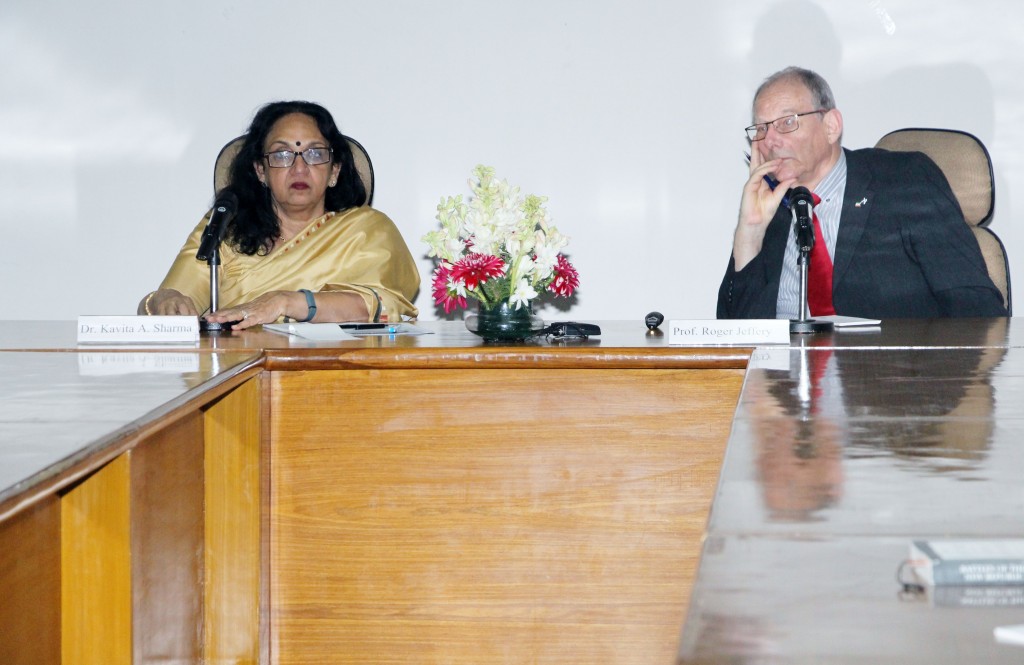New Delhi: Rather than giving in to external pressures on Clinical Trials, South Asian countries can help change a global mind-set in which patients are given little protection and can do their own research on their own problems, Roger Jeffery said during a lecture. The lecture, organised by the South Asian University, was part of the Distinguished Lecture Series that features academics and intellectuals from around the world on a variety of subjects.
Roger Jeffery is a professor of Sociology of South Asia at the University of Edinburgh. He has carried out research in north India since 1972. His recent research projects have investigated access to pharmaceuticals in Africa and South Asia, and issues of governance, collaboration and knowledge generation in bio-medical and public health trials in South Asia.
During his lecture, Professor Jeffery shared his experiences from the Biomedical and Health Experimentation in South Asia (BHESA), which was funded by the UK Economic and Social Research Council.
The event was chaired by Dr. Kavita Sharma, President – South Asian University.
Professor Jeffery said South Asia becomes a good choice as trial sites as it offers many advantages including lower personnel costs, treatment naïve or cleaner patients, large numbers of potential trial participants, English speaking people and opportunities to build market access for patented drugs. While the drug trials have been going on from the 1990s, the pace has picked up post 2005, he added.
In joining the international flow of research, stake holders based in South Asia attempt to capture the economic benefits of scientific innovation by creating research capacity, relevant training, skills and facilities or generate knowledge of health problems on site, update patient care systems, and improve overall research cultures, he observed.
He further said that the promise of these partnerships is of internationally transferable knowledge and commodities which generate other benefits along the way – employment, career development, infrastructure and entrepreneurial possibilities. Professor Jeffery used data from a recently concluded research project in India, Sri Lanka and Nepal to assess the effects of the challenges as well as opportunities that this form of globalisation presents.
